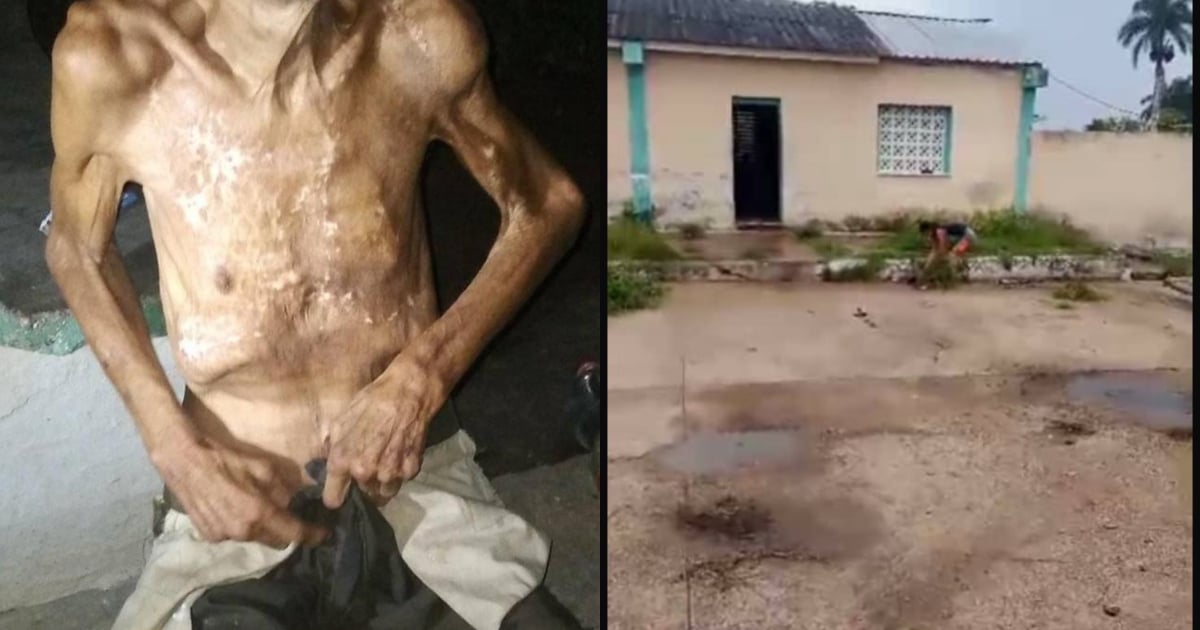
What is happening in the psychiatric hospital of Placetas (Villa Clara) is a horror story. This is described by two relatives of people with mental illnesses who are kept confined in that hospital, which was supposed to be dismantled and moved to Corralillo, about 120 kilometers away. However, several families opposed this because, due to the transportation difficulties the country is experiencing, it became very hard for them to visit their relatives. The problem is that the move is half-finished, and nothing that was taken has been returned or restored, which has made the situation of the hospital even more precarious.
"The sick were not taken to Corralillo, but the beds were taken to Corralillo. They took the toilets, the chairs where they rested, the televisions, the water installation, the pipes... They stole the turbine and the police arrived and the turbine did reappear, but the water installations never returned and no one knows where they went," explains a relative.
“It is a concentration camp,” notes another Cuban who prefers to remain anonymous to avoid reprisals against her relative, who is detained in the center, where in the last week several days have passed without water, even to drink. Those who have gone to visit their relatives attest to this and have found them dirty, with remnants of feces and urine on their bodies and clothes; without pajamas because the seamstress had not come to make ties to secure them.
"It's in a hellish place, with pastures around, and there's no place to ask for a glass of water. There's nothing there. There are no washing machines, and since there's no water or staff to wash, just imagine," he adds.
Some time ago, the hospital housed 70 people, but now only 30 remain, and no one knows if the forty that are missing have died or have been taken somewhere else. Many of those who remain are bedridden. "They are dying there."
The head of the psychiatric hospital, Sule Ribera, does not allow family members to enter so they do not see the precarious conditions in which the inmates are kept. Also because she has been seen taking a fan that, according to her, was broken and she was going to fix to be able to sleep at her house nearby. Or because families have entered without warning and caught an administrator taking out a piece of beef. Nothing compared to the scraps that are given to feed the patients. “Since they are crazy, nobody cares,” points out a woman with a relative in that hospital.
Sule Ribera arrived at the psychiatric facility in Placetas, having been transferred from the General Hospital, where she was accused of selling medications to patients. At the psychiatric facility, she has had clashes with some staff members, even reaching the point of physically assaulting one of them, according to information in the possession of Yaquelín Abreu, the administrator of the Facebook group Todos Somos Placetas.
Many of the patients in the Placetas psychiatric facility do not have teeth to eat the tough meat and boiled green plantains they are given during visits. There is no blender at the center to make them a puree, which is why many of the patients look emaciated. "This is now much worse than during the special period," insists the same source.
The situation is so bad that one family went to complain to the Provincial Directorate of Public Health, the Government, and the municipal PCC, and the only thing they've achieved is that instead of ex-convicts being hired as guards, who beat up patients that try to escape, there are police officers preventing family members from entering the hospital.
"The bathrooms have a slime, which makes them slippery and people fall inside. What more can I say? That's horrible," emphasizes this family member who assumes that the mentally ill in Placetas are confined in "a concentration camp."
What do you think?
COMMENTFiled under: